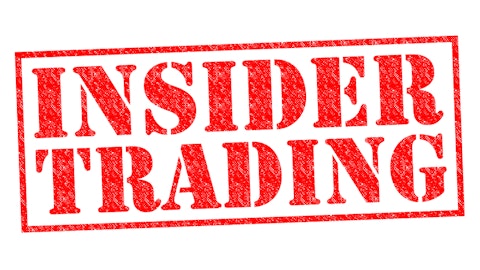As already mentioned in a previous insider trading article, the volume of insider selling in November reached a whopping $7.6 billion. This represents the second-highest monthly volume of insider selling in 2015, which might raise red flags for investors. The volume of insider selling was higher only in May, which was followed by a decline in the S&P 500 Index of 3% in June and 6.4% through the end of August. In the meantime, the S&P 500 benchmark is down by more than 2% so far this month and there are growing concerns about the direction of U.S equities. It is also worth pointing out that the record-high cash M&A activities and the falling number of stock buyback announcements continue to raise these concerns. Insiders sold 25-times more worth of shares than they bought last week, and the ratio of insider selling over insider buying has been at such high levels for several weeks now. Moving on to the underlying purpose of this article, the Insider Monkey team pinned down three companies that registered noteworthy insider sales this week, which we’ll discuss in this article.
Prior to discussing the insider trading activity, let’s make you familiar with what Insider Monkey does besides providing high-quality articles. At Insider Monkey, we track hedge funds’ moves in order to identify actionable patterns and profit from them. Our research has shown that hedge funds’ large-cap stock picks historically underperformed the S&P 500 Total Return Index by an average of seven basis points per month between 1999 and 2012. On the other hand, the 15 most popular small-cap stocks among hedge funds outperformed the S&P 500 Index by an average of 95 basis points per month (read more details here). Since the official launch of our small-cap strategy in August 2012, it has performed just as predicted, returning 102% and beating the market by more than 53 percentage points. We believe the data is clear: investors will be better off by focusing on small-cap stocks utilizing hedge fund expertise (while avoiding their high fees at the same time) rather than large-cap stocks.
To start with, let’s investigate the insider selling activity registered at AFLAC Incorporated (NYSE:AFL). Kenneth S. Janke Jr., who currently serves as Executive Vice President; Treasurer and Head of Corporate Finance and Development, reported selling 60,415 shares on Tuesday at a weighted average price of $62.11, all of which were held by a trust fund. After the recent sell-off, this trust fund still owns 15,000 shares. Meanwhile, the EVP also holds a direct ownership stake of 114,919 shares. The company mainly sells supplemental health and life insurance in the United States and Japan, and has seen its shares decline by slightly more than 2% year-to-date. The U.S dollar strengthened against the Japanese yen in 2015, adversely impacting the company’s reported financial results. The uncertainty around the yen/dollar exchange rate has also spurred uncertainty about the company’s earnings objectives for the current quarter. AFLAC Incorporated (NYSE:AFL) generated revenue of $15.6 billion for the first nine months of 2015, compared with $17.2 billion reported for the same period of last year. Assuming that the yen/dollar exchange rate averages 120-to-125 for the fourth quarter, the company anticipates operating earnings in the range of $1.36-to-$1.56 per diluted share. Meanwhile, one might argue that the EVP’s sizable sell-off does not represent cause for concern, if bearing in mind the company’s cheap trailing price-to-earnings ratio of 10.70 (the average for the S&P 500 stands at 22.71). Ken Griffin’s Citadel Advisors LLC holds a 3.01 million-share position in AFLAC Incorporated (NYSE:AFL) as of September 30.
Follow Aflac Inc (NYSE:AFL)
Follow Aflac Inc (NYSE:AFL)
Receive real-time insider trading and news alerts
Let’s move on to the next page of this insider trading article, where we disclose the insider sales registered at PMC-Sierra Inc. (NASDAQ:PMCS) and Campbell Soup Company (NYSE:CPB).





